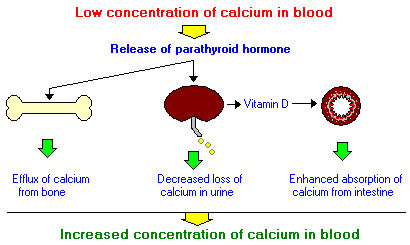For now, let’s try to focus on the gland which is relatively familiar from the thyroid, the Parathyroid Gland which secretes parathyroid hormone (also known as “parathormone” or “parathyrin”).
Actually, we have four parathyroid glands. Parathyroid's name was derived from where it can be found- proximate or adjacent to the thyroid gland. Though these two glands are placed near to each other, they still play an exceptional role. That everything has its own purpose. It just doesn’t simply exist. And Parathyroid gland has its own persistence that is to help our body to keep a certain calcium level needed so that we could perform well as a normal individual.
The hormone secreted by this gland functions in regulating of body’s serum calcium levels. It was said that PTH uses G-protein,adenylyl cyclase second messenger system and actually was claimed to be one of the first. Regulation of serum phosphate and vitamin D synthesis are another significant task of PTH.
Wondering how are hormones being activated into our system? Simply because God is great to create a calcium-sensing receptors in the PTH that whenever a person suffers from a sudden decreased blood cacium levels, calcium-sensing receptors are on their way to activate the parathyroid hormone. Try to look at this illustration.

Reference: http://www.vivo.colostate.edu/hbooks/pathphys/endocrine/thyroid/pth.html
